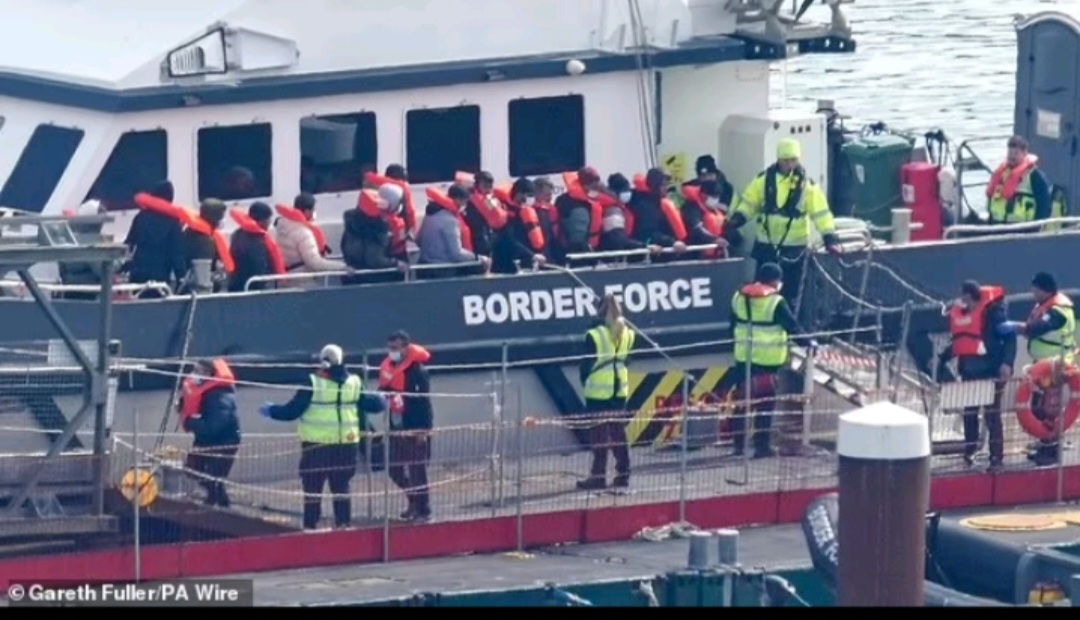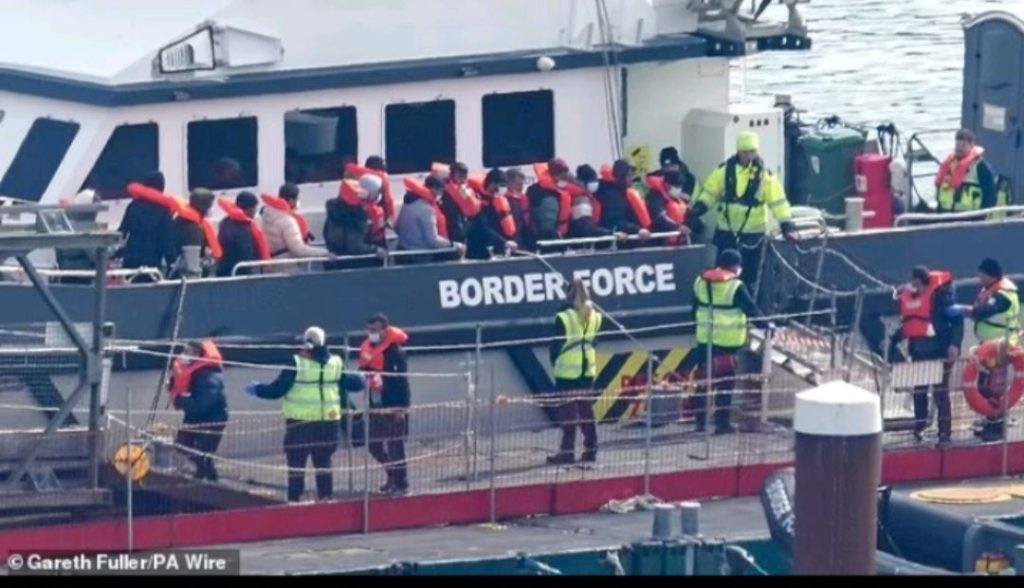
In a moving moment at the Port of Dover, numerous migrants, including at-risk children, were rescued and brought to safety following their perilous journey across the English Channel. This recent influx of asylum seekers adds to the increasing number of individuals and families seeking sanctuary, with the monthly total now exceeding 2,000—a sobering reflection of the enduring humanitarian crisis at Europe’s borders.

As reported by Dailymail, Border Force vessels, including Volunteer and Defender, intercepted multiple inflatables navigating the hazardous 21-mile wide Dover Straits, rescuing the migrants. Among them were children, some so young they could barely walk, wrapped in blankets and held in the arms of officials, their faces reflecting both exhaustion from their journey and uncertainty about their future.
This surge in arrivals is not an isolated incident but part of a broader pattern marked by a steady rise in the number of individuals attempting the perilous crossing. According to Home Office data, over 4,306 people have made the journey across the Channel this year, compared to 3,770 by the same date last year⁴. These statistics underscore the desperation compelling these migrants to risk their lives in pursuit of safety and a better future.
The English Channel, a bustling shipping route fraught with strong currents and unpredictable weather, has emerged as a focal point for migrant crossings. These small boats are often overcrowded and ill-equipped for the journey, rendering the passage extremely perilous. The recent surge in arrivals has reignited discussions surrounding the UK’s immigration and asylum policies, with Prime Minister Rishi Sunak asserting that his “stop the boats” strategy is effective, despite the increased number of recorded arrivals this year.
Meanwhile, the government’s Rwanda Bill, designed to deter illegal crossings by sending asylum seekers to Rwanda for processing, is currently stalled in parliamentary proceedings following setbacks in the Lords. With MPs not slated to revisit the issue until after the Easter recess, the fate of the bill and its potential ramifications for Channel crossings remain uncertain.
The toll of these crossings on human lives is incalculable. Each boat carries not just individuals but narratives of adversity, oppression, and aspiration. Among the recent arrivals was a migrant rushed to the hospital with stab wounds, underscoring the severe conditions and hazards endured by those undertaking the journey³.
The response to the crisis has been multi-dimensional, with calls for more stringent measures to deter perilous crossings and ensure the safety of asylum seekers. Simultaneously, there’s a growing demand for compassionate policies addressing the root causes of migration and offering protection to those in distress.
As the UK confronts the complexities posed by the escalating Channel crossings, the plight of migrants and the broader implications for international refugee law and human rights remain prominent in public discourse. The sight of children arriving in Dover serves as a poignant reminder of the ongoing struggles endured by many globally and the collective obligation to provide refuge and assistance to those escaping conflict, persecution, and impoverishment.




